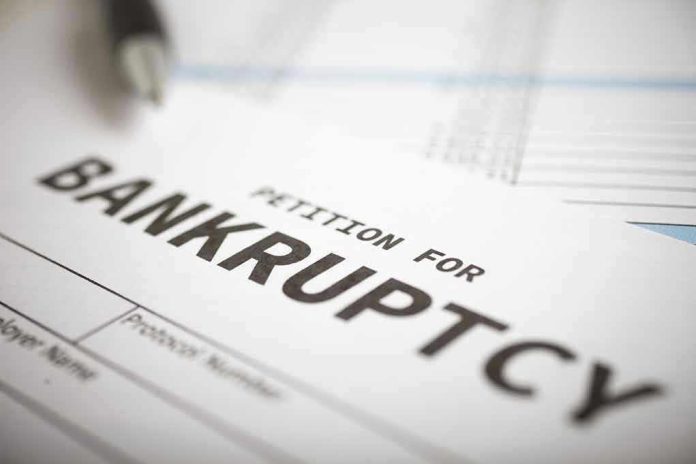
A robotics pioneer that once swept the world’s living rooms now teeters on the edge of vanishing entirely—threatening to turn Roomba from household hero to cautionary tale in a matter of months.
Story Snapshot
- iRobot, creator of the Roomba, faces imminent bankruptcy after Amazon’s $1.4 billion acquisition collapsed.
- Cash reserves are nearly gone; efforts to find new buyers or investors have failed.
- The fate of employees, customers, and the entire consumer robotics sector hangs in the balance.
- This crisis exposes how even innovators can be swept aside by market shifts and regulatory obstacles.
Pioneers on the Brink: iRobot’s Rapid Descent
iRobot, founded by a group of MIT roboticists in 1990, once represented the future of household automation and American ingenuity. Their Roomba robotic vacuum, launched in 2002, became synonymous with home robotics and sold tens of millions of units worldwide. Two decades of dominance now count for little as the company’s financial health has eroded to a critical point. The dramatic unraveling began in earnest when Amazon’s much-publicized $1.4 billion acquisition attempt collapsed in early 2024, leaving iRobot exposed to mounting debts and fierce competition from cheaper Asian manufacturers.
The Amazon deal was iRobot’s lifeline. Without it, the company found itself scrambling to secure funding or new buyers, only to watch one suitor after another walk away. By the end of 2025, iRobot’s cash reserves had plummeted to just $24.8 million, barely enough to cover operational expenses for a few more weeks. Official filings now warn of “substantial doubt” about the company’s ability to continue—language that signals imminent bankruptcy unless something dramatic changes. For a company that once embodied American innovation, this is more than a financial crisis. It’s an existential reckoning.
How a Titan Fell: From Market Dominance to Disintegration
iRobot’s early years were characterized by rapid growth and near-total dominance in the robotic vacuum sector. Their engineering prowess and first-mover advantage made Roomba a household name. However, as global competitors entered the market with lower-priced, competent alternatives, iRobot’s once-impenetrable moat shrank considerably. Add to that the pandemic-induced supply chain snarls and volatile consumer demand, and the cracks started to show. The company’s heavy reliance on its flagship product—without significant diversification—left it uniquely vulnerable to these headwinds. Regulatory scrutiny that doomed the Amazon deal was simply the final blow in a series of mounting challenges.
The maker of the Roomba is running out of cash and options. After its failed Amazon deal, iRobot could face bankruptcy. https://t.co/E0oMF1h0cn
— Insider Tech (@TechInsider) November 6, 2025
By late 2025, the company had drawn down all lines of credit and was forced into difficult negotiations with lenders to extend a crucial loan waiver until December 1. The most recent financial disclosures revealed a year-over-year revenue decline of 25%. CEO Gary Cohen’s assessment was blunt: disappointing sales, production delays, and shipping disruptions had drained the company’s cash and pressured profitability. No other buyer or investor has stepped forward, and employees now face a future defined by uncertainty or sudden layoffs.
The Ripple Effect: What iRobot’s Collapse Means for Robotics and Beyond
The stakes extend far beyond iRobot’s headquarters or its shareholders. The possible bankruptcy of this once-proud brand has the potential to reshape the entire consumer robotics landscape. For employees, it spells job losses; for consumers, the impending end of product support or warranty service. Retailers and supply partners, left holding inventory or contracts, may take financial hits. The broader economic impact includes supplier disruptions and potential write-downs for creditors—some of whom now effectively control iRobot’s fate through debt agreements.
This saga also highlights how regulatory intervention can upend even the most carefully planned tech mergers. The collapse of the Amazon acquisition was not just a blow to iRobot, but a warning shot for any mid-sized tech firm hoping to be rescued by a tech giant. Industry analysts now see iRobot as a cautionary tale—a case study in the dangers of overreliance on a single product and the unpredictability of global markets. The fall of iRobot may trigger further consolidation as competitors eye its intellectual property, or it may simply mark the end of an era in American robotics innovation. Either way, the Roomba’s fate will be watched closely across the tech world as the deadline for rescue approaches—and as the dust settles on one of the most dramatic downfalls in recent tech history.
Sources:
Vacuum Wars (industry analysis)
PR Newswire (official financial results)
The Robot Report (industry news)



